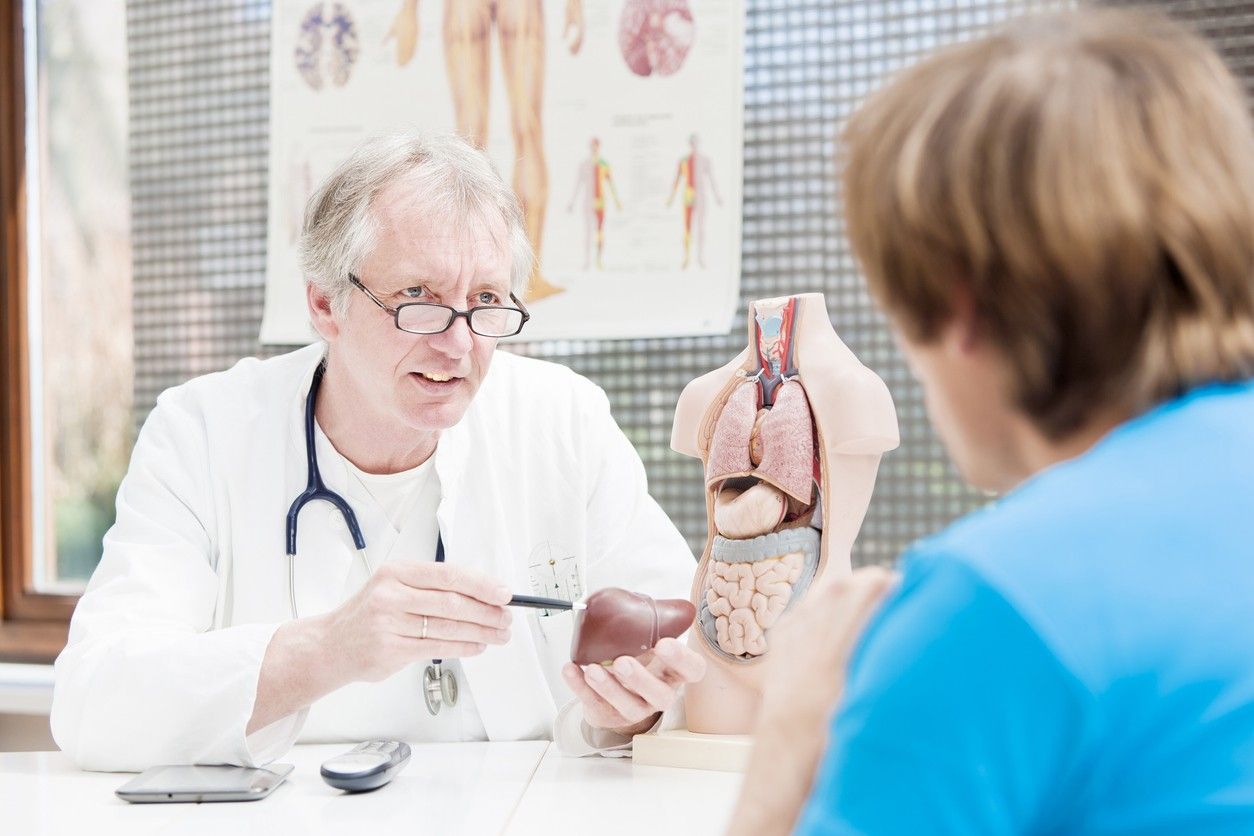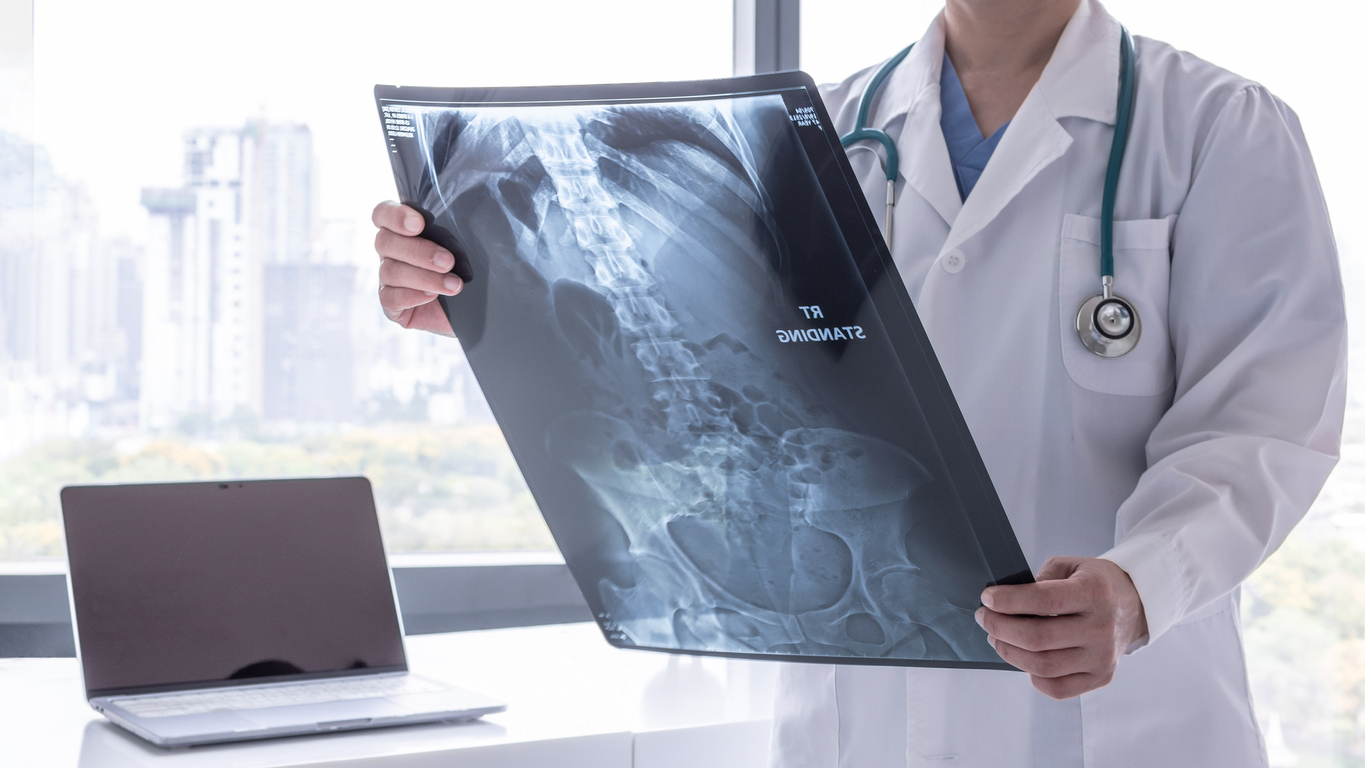Liver Trouble Could Be Signaled By This Stomach Symptom
Your stomach can tell you a lot about your health. Pain, nausea, or cramping could be due to that sketchy lobster roll you had for lunch, or the gastrointestinal bug your child brought home from summer camp—but your stomach can also be affected by health conditions you wouldn’t normally think of as being connected to tummy troubles. Gallstones, hypoglycemia, and pancreatitis can all manifest with stomach distress, and one abdominal symptom in particular may be a warning sign of a serious problem with your liver. Read on to find out what it is, and when to head to the doctor.
READ THIS NEXT: If You Notice This Around Your Eyes, Get Your Liver Checked.

The Mayo Clinic describes the liver as the body’s largest internal organ. About the size of a football, it is “located mainly in the upper right portion of your abdomen—beneath the diaphragm and above your stomach,” says the site. “A small portion extends into the upper left quadrant.”
The liver isn’t just big; it’s also extremely busy. “More than 500 vital functions have been identified with the liver,” explains Johns Hopkins Medicine. The National Center for Biotechnology Information lists some of these functions as helping to support metabolism, immunity, digestion, detoxification, and vitamin storage among others.

While you may associate your digestive system with organs such as the intestines and the esophagus, the liver plays an important role in helping your body with digestion and nutrition. Its main function there is “to process the nutrients absorbed from the small intestine,” explains the Cleveland Clinic. “Bile from the liver secreted into the small intestine also plays an important role in digesting fat and some vitamins.”
In addition to processing nutrients and producing chemicals, the liver “also detoxifies potentially harmful chemicals,” the Cleveland Clinic continues. “It breaks down and secretes many drugs that can be toxic to your body.” These functions, and the many others that the liver performs, make it a vital part of your body’s wellbeing. “The liver is so crucial to existence that while you can live with only part of a liver, you can’t live without any liver at all,” notes Healthline.
RELATED:
For more up-to-date information, sign up for our
daily newsletter.

Tumors that form inside or on the liver are called hepaticmycancerbridge.com tumors, according to the Beth Israel Deaconess Medical Center (BIDMC). While some tumors are benign, they may cause health issues if they increase in size, says the site. Furthermore, “liver tumors that are malignant—growing into nearby tissue or spreading to other parts of the body—are liver cancer.”
Liver tumors can secrete hormones which then have an effect on other organs, The American Cancer Society explains. In some instances, this can cause hypercalcemia (high blood calcium levels). And given the liver’s proximity to the stomach and how much support it provides to the digestive process, it makes sense that liver cancer may manifest with signs that mimic an upset stomach.

Hypercalcemia can lead to nausea and vomiting, explains Andrea Palka, BSN, RN, OCN, and nursing manager at CancerBridge.
“As nausea is an incredibly common symptom of many different conditions, both benign and serious, it’s easy to attribute a bout with nausea with something more common like food poisoning, infection, motion sickness or overeating,” says Palka. “If your nausea is ongoing or is accompanied by persistent vomiting or any of the other signs of liver cancer, it could be a sign of a liver problem and you should call your primary care doctor immediately.
Palka adds that other symptoms of hypercalcemia may include “confusion, constipation, weakness muscle problems, extreme thirst, and frequent urination.”

“Sadly, it’s possible to have early-stage liver cancer but not exhibit any symptoms,” says Palka, who also advises people to know their risk for liver disease. Palka explains that some of these risk factors can include “gender, race, if you have tested positive for hepatitis B virus (HBV) or hepatitis C virus (HPC), alcohol use, obesity and more.”
Chronic infection from hepatitis B or hepatitis C present “the biggest risk for developing liver cancer,” says Palka. “To limit your risk, avoid sharing needles, practice safe sex and consider getting an HBV vaccine.” She also suggests “reducing your alcohol consumption, reducing or stopping tobacco use, maintaining a healthy weight, and limiting your exposure to cancer-causing chemicals and aflatoxins.”
It’s also important to know other warning signs of liver disease. “The most common symptoms include unintended weight loss, loss of appetite, upper abdominal pain and swelling, weakness and fatigue, jaundice (a yellowing of the skin), and white, chalky stools,” Palka says.
" Conservative News Daily does not always share or support the views and opinions expressed here; they are just those of the writer."

Now loading...